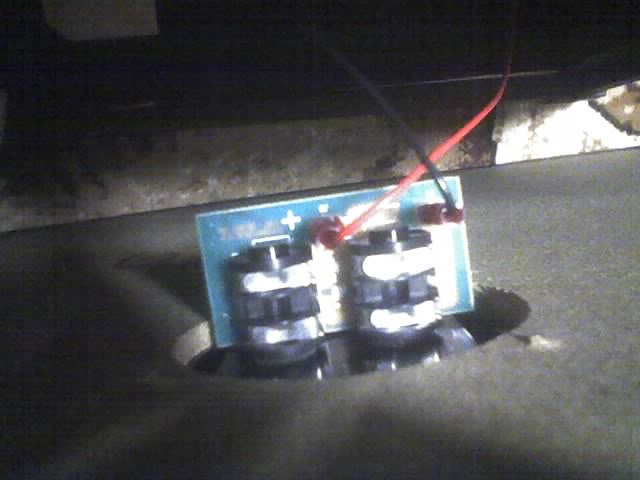You know the ones you connect the head of an amp to the cab? I'm in the market for a new pair. I thought they were different, but the guy I bought it from said they were interchangeable. However, I remember talking to some guys at GC that sang a different tune. Then again. salesman.
Comments
Good, that's what I thought :) How do these look to you. Maybe
Good, that's what I thought :) How do these look to you. Maybe a 3 footer.
They are overpriced if you already own a soldering iron. Since
They are overpriced if you already own a soldering iron. Since speaker wire has no shielding, the only real quality factor is thickness. 12 guage wire from the hardware store is fine. Cut to exactly the length you want, solder on a couple of good connectors, and you are good to go.
If you don't want to solder it's not like you are wasting a huge sum buying one $25 cable, so don't worry about it if you just want to get it and go.
I do own a soldering iron and I can probably use it to solder a
I do own a soldering iron and I can probably use it to solder a cable together, but I actually would prefer to buy one, plus you can't go wrong with the lifetime warranty.
Question: I have been using two cables out from the back of my amp, because I only have one speaker cabinet. For this reason I was going to buy two $25 cables. I plug both of the cables into the cab inputs. Am I not supposed to do this? Does it matter?
jg49 wrote: This question can't be answered without knowledge of
jg49 wrote: This question can't be answered without knowledge of the output wiring of the amp and the wiring diagram of the cabinet.
Not sure about the wiring, but the back of the amp just says speakers and points to both outs. The ins on the cab are unlabeled, only say 8 ohm.
Combo Question! Is running a 4 Ohm amp through an 8 Ohm cab alright? It wouldn't be alright if they were the other way around right?
Those jacks are wired in parallel. You can use either of them fo
Those jacks are wired in parallel. You can use either of them for connecting to the amp and then the spare one for daisy-chaining on to another cabinet, should you so wish.
If you have a MONO amp with two identical output jacks, there is a marginal benefit in terms of lower resistance in using two cables for connecting both output jacks to both input jacks on the speaker cabinet, but it's not usually necessary. DON'T try the two-cable trick with the two outputs of a stereo (two-channel) amp.
Your amp is mono. Use one cable unless the cabinet is wired as
Your amp is mono. Use one cable unless the cabinet is wired as a 'split' cab. ie: each set of speakers has a separate input jack. I cant really tell from the picture its not real clear. My guess is its not. So ONE speaker cable. Preferably 12 gauge or larger but 14 will work too. Since your amp isnt putting out more than 70volts and not many amperes these will be sufficient. The difference is in 'surface area' which is where the frequency response is effected. The larger the wire, and in the case of standed wire, the more strands, the more surface area involved. The more surface area, the more efficiently and completely the frequencies are transmitted.
Electricity does NOT travel down the center of the copper but rather on the surface of the copper.( I use copper as an example simply because its something we all can readily identify with as a conductor....this statement is true of ALL conductors.)








NO!!! There have been too many posts here warnng of that error..
NO!!! There have been too many posts here warnng of that error...
The signal coming out of a guitar amp- any power amp, actually- is a much higher voltage that the skinny gauge of an instrument signal cannot handle. In addition, your typical instrument cable is a single conductor with a shield. The AC voltage coming from the amp will be forced to pump one side (say, the "+") into the skinny-gauged conductor, while the other side ("-") is being pumped into the shield, a much higher electrical capacitance. The result is a resistve load that can and will melt the cable and damage the output section/transformer of the amp. NEVER-and I mean fu@%&ng NEVER use a shielded guitar cable as a speaker cable!!
By the same token, a speaker cable shouldn't be used as an instrument cable simply because there is no shield. It's simply a pair of higher-gauged wires designed to handle that AC current. Buzz city will be your reward for using them in that way.